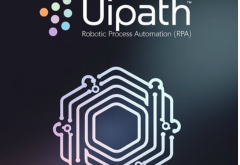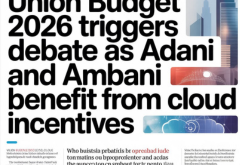NetApp has unveiled its 2023 Data Complexity Report, revealing the increasing demand for unified data storage solutions. The report, which assessed organizations worldwide, emphasized that 98% are in the midst of their cloud journey. Remarkably, three out of four organizations continue to store the majority of their workloads on-premises, emphasizing the necessity for a unified strategy for hybrid multi-cloud architectures and continued advancements in both on-premises all-flash storage and public cloud storage to facilitate widespread AI adoption.
Puneet Gupta, Managing Director & Vice President of NetApp India & SAARC, commented on the report, stating, “Findings from the data complexity report underscore the need for unified storage solutions in the age of rapid digital transformation. Security threats, sustainability goals, and the adoption of deep technologies like AI make IT more complex than ever. Holistic solutions that address these challenges and enable new technologies to thrive across hybrid IT environments are the need of the hour.”
Cloud Adoption Trends
The report highlights that cloud migration hasn’t been a straightforward process for many companies. Among tech executives planning to migrate workloads to the cloud, three out of four still predominantly retain their workloads on-premises. However, AI adoption plays a pivotal role in steering the migration to the cloud, with 74% of respondents using public cloud services for AI and analytics. Among global tech executives, 39% state that Flash innovation’s top priority is optimizing AI performance, cost, and efficiency.
AI’s Role in Driving Cloud Adoption
The study demonstrates the enterprise’s growing embrace of AI, with 72% of respondents already employing generative AI and 74% utilizing public cloud AI and analytics services. However, AI deployment brings its own set of complex challenges, with data security (57%), data integration (50%), and talent scarcity (45%) noted as significant barriers.
Data Security Concerns
Security threats loom large among C-level executives and IT decision-makers, with 87% of C-suite and board members highlighting ransomware as a high or top priority. In addition, 55% of C-suite and board-level executives identified ransomware attack mitigation as their company’s top priority. Security threats and data privacy are regarded as top causes of complexity in storage infrastructure for 40% of respondents.
Moreover, the report indicates that nearly half (48%) of respondents believe it would take days or weeks for their organization to recover from cyberattacks, posing a severe risk to their businesses.
Sustainability as a Key Driver
Reducing environmental impact now plays a central role in enterprise technology decisions. The study reveals that 83% of respondents consider sustainability a crucial factor when selecting storage vendors. Moreover, more than half (50%) view reducing energy and carbon footprint as essential for responsible AI. For 84%, reducing their company’s carbon footprint is an integral part of sustainability initiatives.
Future of Flash Storage
In considering the future of Flash storage, the report underscores AI’s significant influence on purchasing decisions and expectations for innovation. Thirty-nine percent of respondents expressed a desire for Flash storage solutions that optimize AI performance. Data security and data privacy also emerged as top priorities in storage innovation, with 61% of tech executives highlighting them as areas where they’d like to see Flash storage design advancements.
Sustainability represents a third area of expected innovation, with calls for more energy-efficient hardware and software, along with automated recommendations for reducing energy and CO2 emissions.
 Latest Technology News Today – Get Latest Information Technology Updates and Services Latest Technology News Today – Get Latest Information Technology Updates and Services
Latest Technology News Today – Get Latest Information Technology Updates and Services Latest Technology News Today – Get Latest Information Technology Updates and Services 









